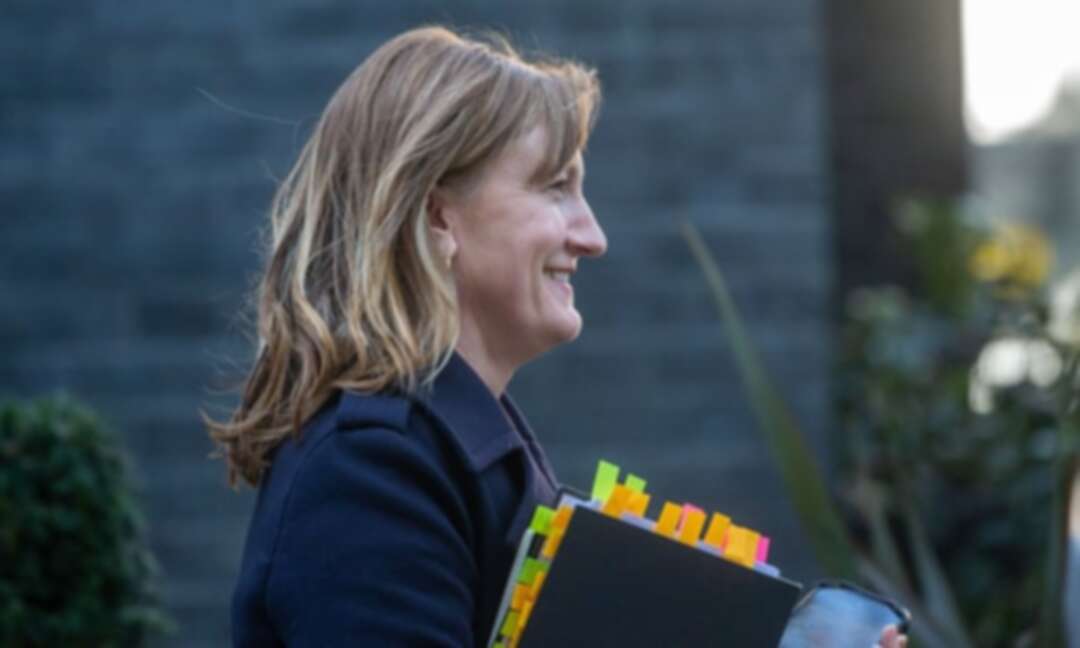-
No 10 televised press briefings delayed amid media strategy review

Sources say plan is still to start TV briefings in mid-May, despite speculation that Downing Street has doubts about the idea
They were proposed last summer as a way to revolutionise the transparency of government communications. But the advent of White House-style televised press briefings is to be delayed again until mid-May, as No 10 looks to reform its communications strategy following the departure of key staff.
The delay means it is likely to be at least seven months between the former ITV journalist Allegra Stratton being hired on a £125,000 salary to be the public face of the government and her first appearance on the nation’s television screens.
Despite continued speculation that Downing Street is having doubts about the idea of televising political press briefings, sources insisted the plan is still to push ahead with them once May’s elections are out of the way. The expectation is that by then the relaxation of coronavirus rules means the public will not expect to see familiar ministers on their screens, while the end of the election campaign means TV channels will not be concerned about potential breaches of broadcasting impartiality rules.
It comes as Boris Johnson looks for a new director of communications to shape Downing Street’s post-pandemic political messaging after the recruitment of the incumbent James Slack as deputy editor of the Sun, announced last week.
There is tension at the top of the government between those who want to continue a combative war with the media focused on “culture war” topics, and those who insist they desire a more traditional collaborative approach with favoured media outlets with a focus on softer issues such climate change.
A key change has been the departure of many of the former Vote Leave staff who came into government with former chief of staff Dominic Cummings and press chief Lee Cain. They were willing to boycott entire programmes but left behind a half-finished revolution to focus on online communications and cull the size of government communications departments when they abruptly departed in November amid government infighting.
Instead, this week MPs raised concerns that the government may have floated the idea of decriminalising non-payment of the licence fee in order to influence the BBC’s editorial line without having to actually change the law.
When the idea of decriminalisation was first publicly proposed on the advice of Cummings in December 2019, it sent the BBC into a panic and helped prompt the early retirement of the BBC director general Tony Hall. This laid the groundwork for the appointment of his replacement Tim Davie, who has pursued a series of government-pleasing policies such as clamping down on BBC staff’s social media use and curbing leftwing comedy shows. With the change of direction already achieved – and the BBC’s strong support of government messaging during the coronavirus pandemic – there is some confidence that the war has been won.
Even those who work with Johnson have been baffled at times by which approach to the media is genuinely endorsed by the prime minister. Insiders reported the prime minister’s mood was often hit by negative articles in the Daily Telegraph, his former employer.
“One day he wants to have a swing at the BBC and the next he doesn’t want to have an argument with anyone,” said one.
Instead, No 10 policy chief Munira Mirza was repeatedly mentioned by sources as an individual pushing forward the desire to fight the media on culture war topics, sometimes to the frustration of press aides.
Relations between political journalists and Downing Street have been strained in recent weeks by the decision to break with precedent and not tell lobby journalists about phone calls the prime minister has been having with other European leaders. Downing Street had argued that discussions with the European commission president, Ursula Von der Leyen, and French president, Emmanuel Macron, were simply private calls that did not need to be disclosed.
There is also concern among political journalists that Downing Street is tolerating ministers who make their own attacks on the media. In recent months two HuffPost UK reporters – Nadine White and Arj Singh – have been targeted by Conservative ministers Kemi Badenoch and Jacob Rees-Mogg for their work. Amid an outcry from members of the media, Downing Street has mildly distanced itself from their actions but not forced them to apologise, with Rees-Mogg repeatedly refusing to withdraw his charge that Singh manipulated audio to smear the foreign secretary, Dominic Raab.
For the public, the biggest change will be the forthcoming press briefings, which could be as exposing for political journalists asking the questions as it will be for Stratton.
The £2.6m bill for refitting a room in 9 Downing Street to host the briefings has already come under scrutiny, with the substantial cost partly attributed to fixing the terrible acoustics in a location that until recently was a disused privy council courtroom built to hear court cases from Commonwealth nations.
The briefing room will get its first public airing on Monday, when Johnson transfers his coronavirus press conference to the location. But there is one concern that is harder to fix: the decision to install a background that is incredibly easy to Photoshop in order to make memes of the prime minister or his spokesperson.One person who has seen the set up asked: “Why was there no one in there pointing out that you’ve built a blue screen?”
source: Jim Waterson
Levant
You May Also Like
Popular Posts
Caricature
BENEFIT Sponsors BuildHer...
- April 23, 2025
BENEFIT, the Kingdom’s innovator and leading company in Fintech and electronic financial transactions service, has sponsored the BuildHer CityHack 2025 Hackathon, a two-day event spearheaded by the College of Engineering and Technology at the Royal University for Women (RUW).
Aimed at secondary school students, the event brought together a distinguished group of academic professionals and technology experts to mentor and inspire young participants.
More than 100 high school students from across the Kingdom of Bahrain took part in the hackathon, which featured an intensive programme of training workshops and hands-on sessions. These activities were tailored to enhance participants’ critical thinking, collaborative problem-solving, and team-building capabilities, while also encouraging the development of practical and sustainable solutions to contemporary challenges using modern technological tools.
BENEFIT’s Chief Executive Mr. Abdulwahed AlJanahi, commented: “Our support for this educational hackathon reflects our long-term strategic vision to nurture the talents of emerging national youth and empower the next generation of accomplished female leaders in technology. By fostering creativity and innovation, we aim to contribute meaningfully to Bahrain’s comprehensive development goals and align with the aspirations outlined in the Kingdom’s Vision 2030—an ambition in which BENEFIT plays a central role.”
Professor Riyadh Yousif Hamzah, President of the Royal University for Women, commented: “This initiative reflects our commitment to advancing women in STEM fields. We're cultivating a generation of creative, solution-driven female leaders who will drive national development. Our partnership with BENEFIT exemplifies the powerful synergy between academia and private sector in supporting educational innovation.”
Hanan Abdulla Hasan, Senior Manager, PR & Communication at BENEFIT, said: “We are honoured to collaborate with RUW in supporting this remarkable technology-focused event. It highlights our commitment to social responsibility, and our ongoing efforts to enhance the digital and innovation capabilities of young Bahraini women and foster their ability to harness technological tools in the service of a smarter, more sustainable future.”
For his part, Dr. Humam ElAgha, Acting Dean of the College of Engineering and Technology at the University, said: “BuildHer CityHack 2025 embodies our hands-on approach to education. By tackling real-world problems through creative thinking and sustainable solutions, we're preparing women to thrive in the knowledge economy – a cornerstone of the University's vision.”
opinion
Report
ads
Newsletter
Subscribe to our mailing list to get the new updates!






















